Vocabulary expansion Normal Two Letter Phonics Worksheets for Ages 7-8
6 filtered results
-
From - To
Enhance your child's vocabulary with our engaging Normal Two Letter Phonics Worksheets designed for ages 7-8. These worksheets are perfect for young learners who are ready to expand their word recognition and phonetic understanding. Each activity focuses on two-letter sounds, helping children to connect phonics with vocabulary building in a fun and interactive way. Incorporating colorful visuals and creative exercises, these worksheets foster an enjoyable learning experience, boosting confidence in reading and language skills. Ideal for classroom use or home practice, our phonics worksheets are an essential resource for parents and educators aiming to enrich children's literacy development.
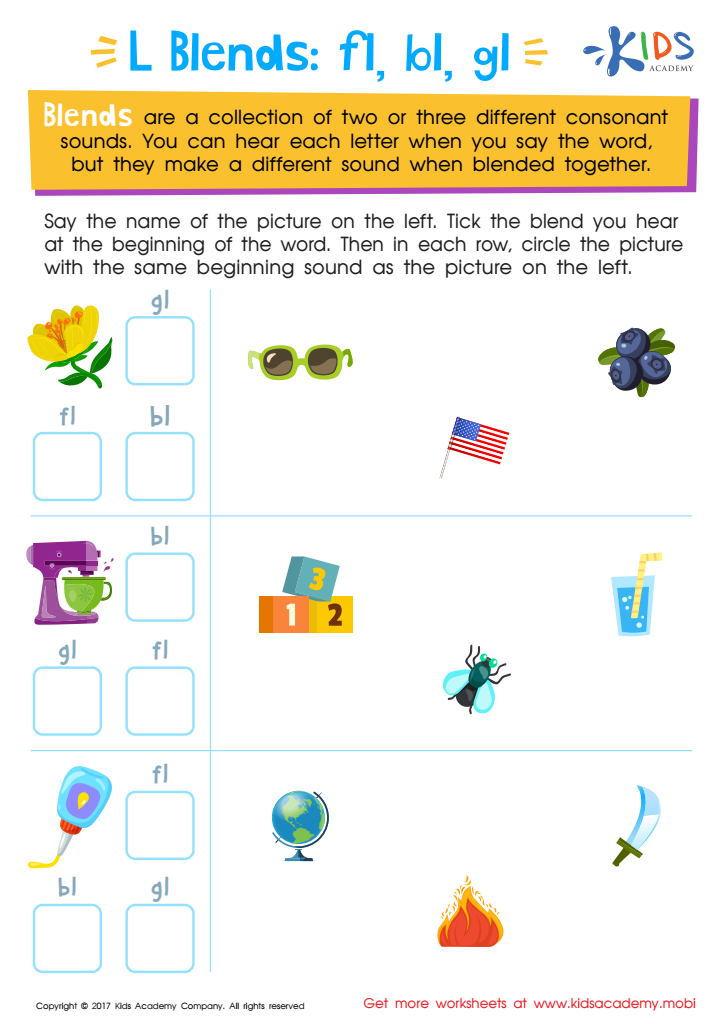

Blending Consonants: "Fl", "Bl" and "Gl" Printable
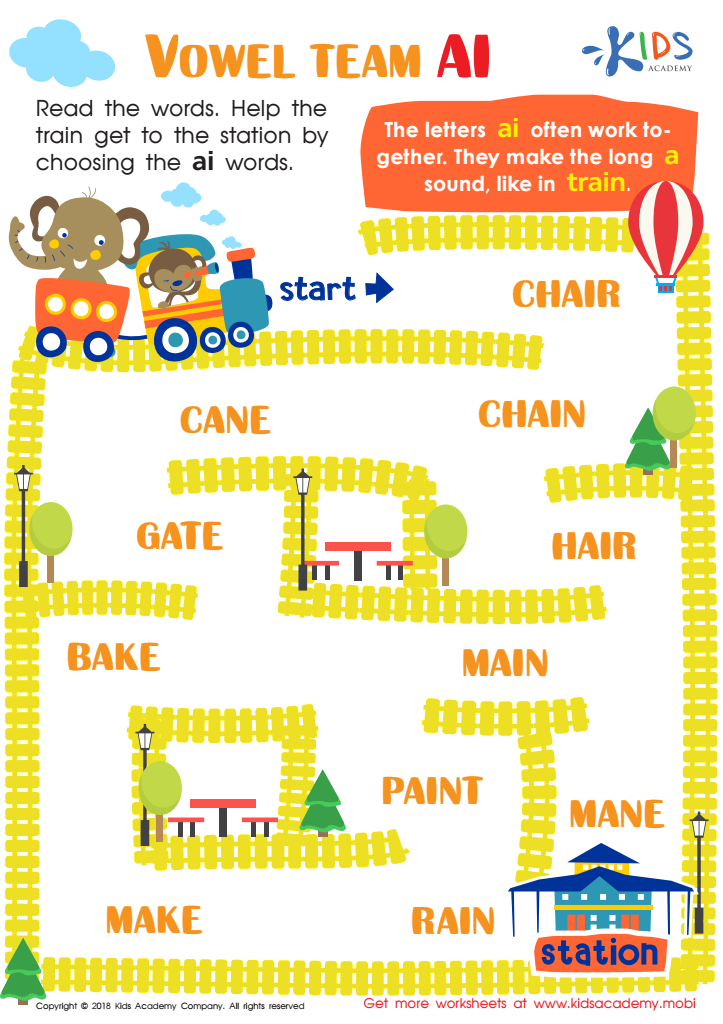

Vowel team ai Worksheet
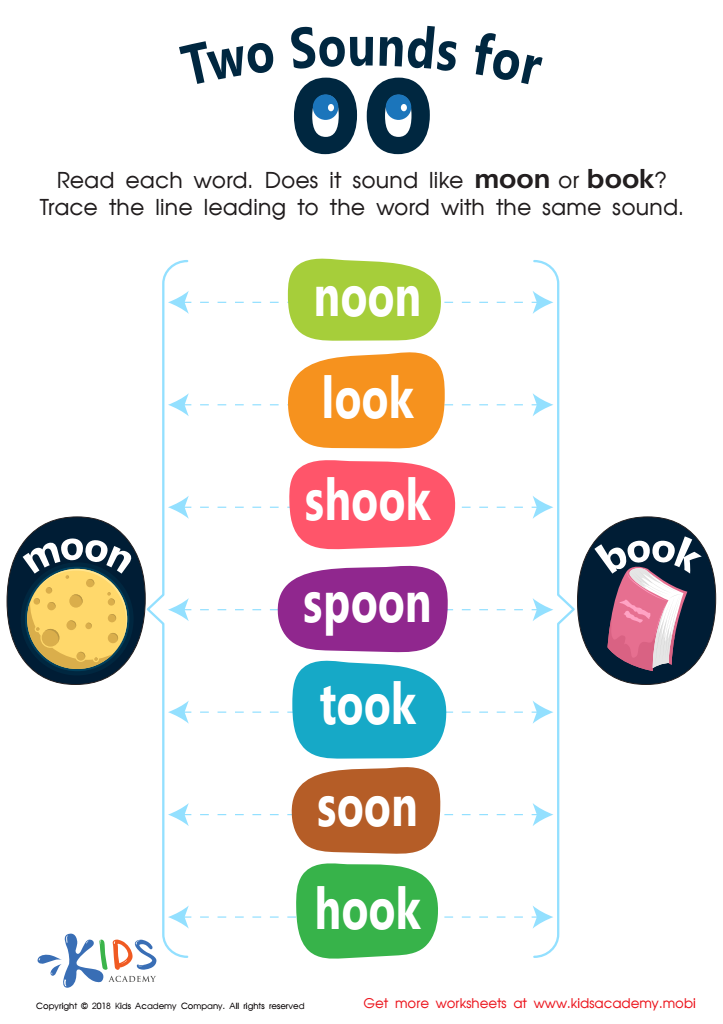

Two Sounds for OO Worksheet
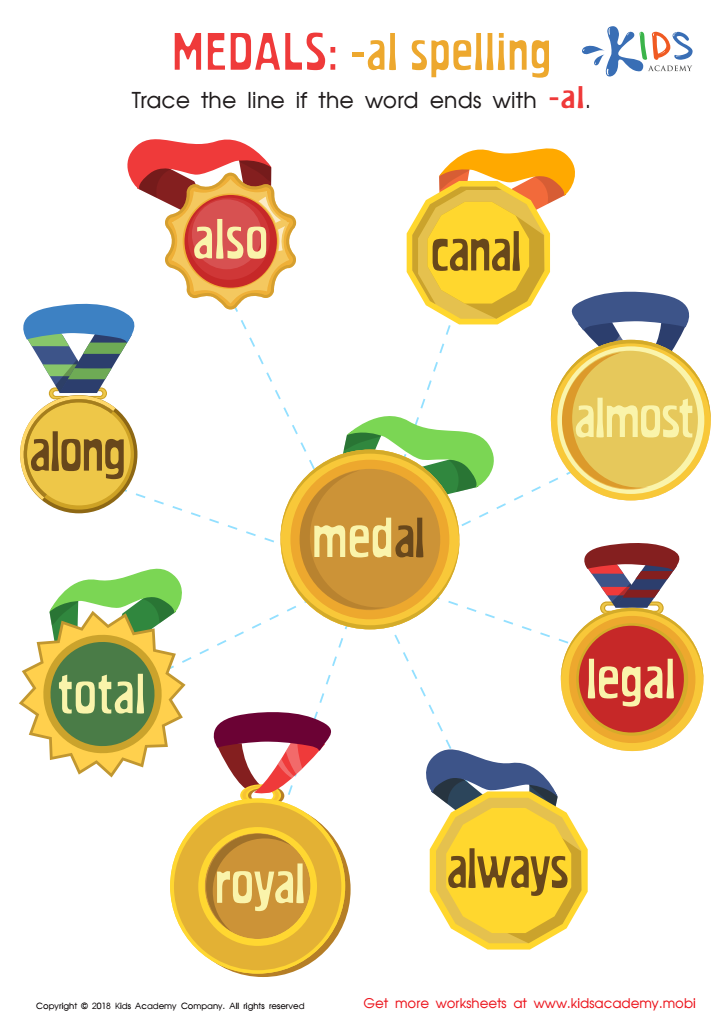

Medals: Al Spelling Worksheet
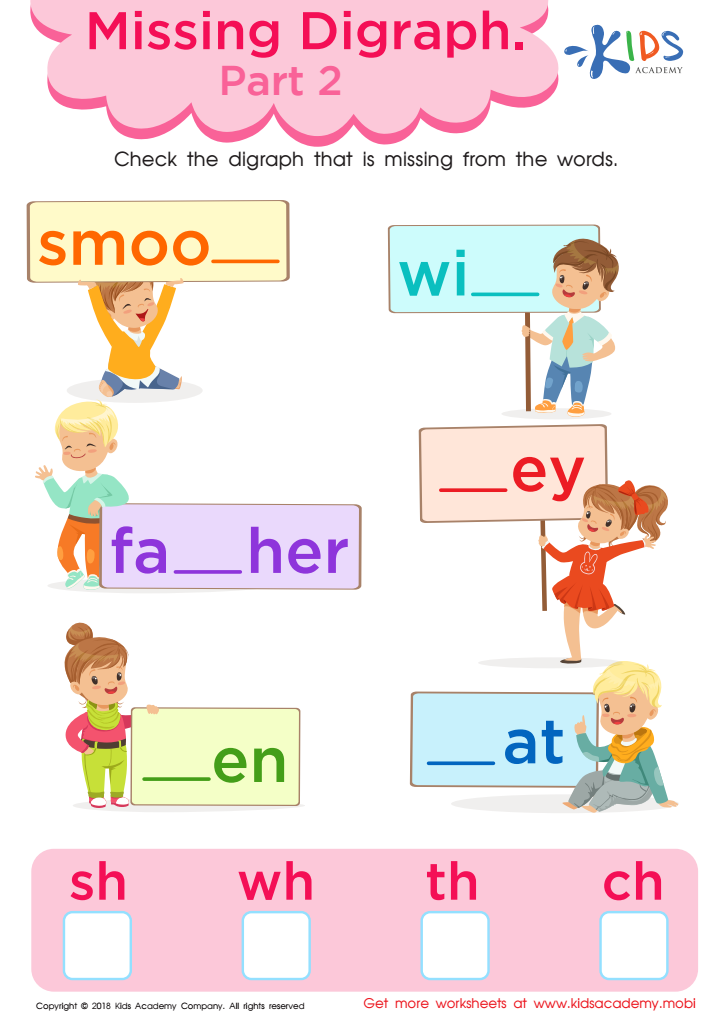

Missing Digraph: Part 2 Worksheet
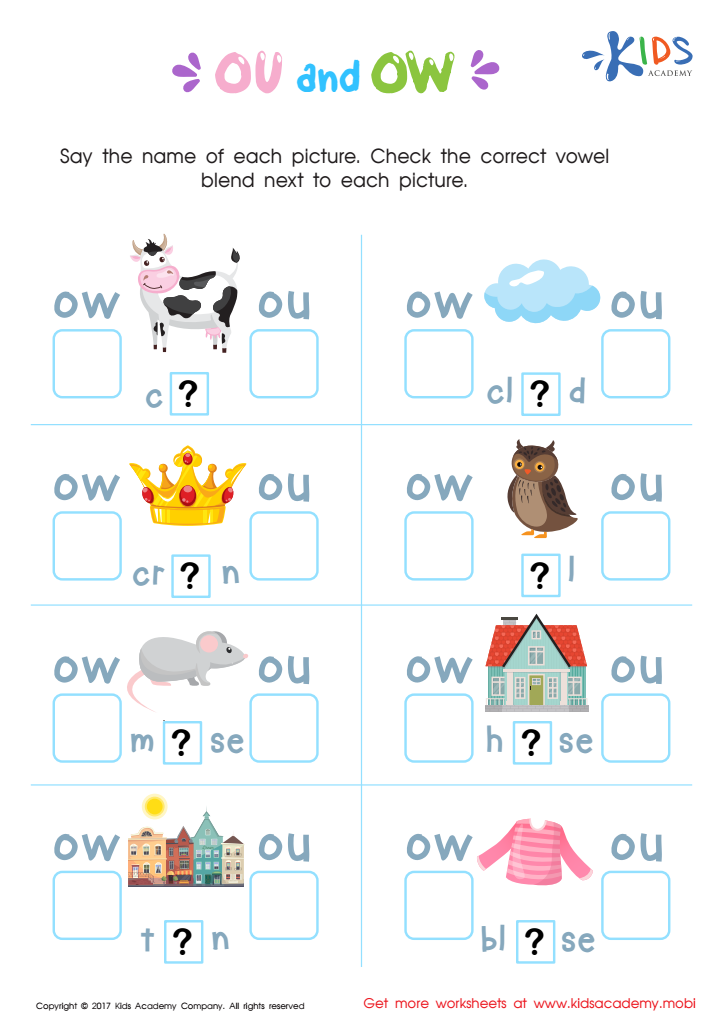

OU and OW Words Worksheet
Vocabulary expansion is crucial for children aged 7-8, especially through methods like Normal Two Letter Phonics. At this developmental stage, children are increasingly developing their reading and writing skills, and their vocabulary drastically influences their academic success and overall communication abilities. Introducing them to phonetic sounds of two-letter combinations helps them decode words more effectively, fostering confidence as they tackle new texts.
When teachers and parents focus on vocabulary expansion through phonics, they contribute to the child’s ability to express themselves clearly and understand others better. A robust vocabulary also enhances comprehension, enabling children to grasp ideas and concepts in various subjects. Additionally, engaging in simple phonics practices can motivate children to enjoy reading, setting the foundation for lifelong learning.
Furthermore, as children encounter more diverse vocabulary in school and beyond, a solid grounding in phonics can prevent potential literacy difficulties. This support is essential in building a strong linguistic foundation, encouraging a love for language, and promoting academic enthusiasm. In summary, prioritizing vocabulary expansion through Normal Two Letter Phonics aligns family and educational values, significantly benefiting a child's literacy journey and facilitating a smooth transition into more complex language skills.
 Assign to My Students
Assign to My Students








